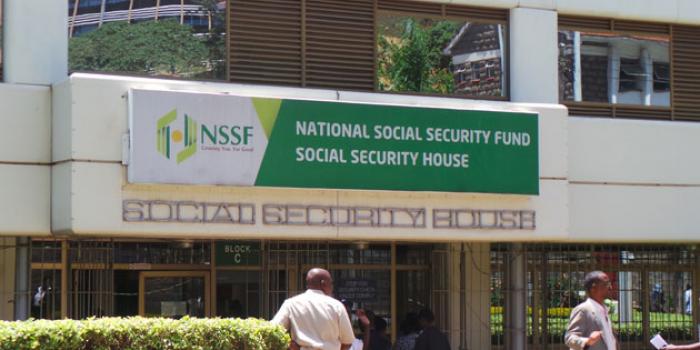The office of The Auditor General(OAG) Has issued a QUALIFIED OPINION on the financial statements of NSSF as at 30th June 2019. These are two years and three months ago.
Qualified Opinion means the OAG did not receive enough information to satisfy itself that the financial statements as presented show a fair view of the financial dealings and position as at the period being covered. That the OAG cannot confidently say the financial statements of NSSF as at 30th June 2019 shows a true picture of the financial situation is a serious issue for the public.
The OAG has given reasons for the opinion;
- Unaccounted for members’ contributions- contributions in transit. That NSSF received contributions for members but did not post them to member accounts. So members have incorrect balances. Which members? We can’t tell. In 2018, 663M was not posted to member’s accounts. Means members got inaccurate statements for the period. And that is if NSSF shares those statements to members in the first place. By 2019, 290M of the 663M above was still not captured in member accounts. Two years down the line, they have not been able to allocate the amounts. Are we likely to correctly allocate this amounts??? I doubt. But OAG will be there to tell us more.
- Unreconciled cash and bank balances. In any institution, cash is King. But maybe not in NSSF. They receive so much cash that they can’t tell completely which amounts belong to which member. That an account at National Bank has material differences between what the NSSF Management Information System (MIS) says is the balance and the actual balance as per bank statement. The bank statement has negative 298M while cashbook shows 419M. This is a whooping 687M difference. Remember the amounts are made up of 400 monthly contributions. Two years down the line the NSSF management has not been able to reconcile this account. will they be able to do it anymore?? Who suffers? Members will get wrong balances as their benefits. So what happens??
- We are also made aware of some payments made out of the bank account but not captured in the NSSF MIS. That would result in cashbook account showing positive balance while actual bank balance in negative. As at 30th June 2019, around 498M was outstanding difference between cashbook and bank balance. Could the bank have made wrong debits in the account? Not likely. And if so, they have records. Most likely scenario is payments were made out of the bank account without procedure of capturing in the cashbook(MIS).
- That a whole 1.9B liability on the balance sheet is doubtful is also tragic. If the liability is understated, it will cause future negative financial effects to the members. Remember some members will have already been paid out and so any adjustments will affect the remaining membership, even if it was for all members in the first place. Anyway, this is taking it too far. Suppose the liability has been understated (Very Unlikely). It will still be adjustable in future to the detriment of some members.
CONCLUSION;
There is either deliberate effort to miss-inform the public and members of NSSF, or there is a collapse of processes in the operation of NSSF.
The board, with COTU representatives who should represent workers, should be more proactive in sorting out this issues to the benefit of its membership.
The Board has responsibility for the operational policies and procedures of NSSF, and should take responsibility.
National Bank was owned by NSSF, prior to its acquisitions by KCB. During these transactions, they were a subsidiary or had significant influence over NBK. We first know what happened to NBK before it was bought by KCB. Banks have a procedure of clearing payments out of a corporate client account. These procedures may have been compromised during these period (Hypothesis)
NSSF Board may also need to review its investment management policy. Some of its investee companies are in red, like East Africa Portland Cement and NBK earlier mentioned. In EAPCC, NSSF has significant influence and the results are not good.
It is not lost to the public that the same NSSF wanted around 6% of Employee contributions to be exclusively invested in them sometime back. With these huge inefficiencies, members’ money would be in significant risks. We are better with the private pension schemes.
Most recently, the government through the AG, wants to turn CPF and LAPTRUST into a state parastatal. The same illnesses that bedevil NSSF will go into the stat corporation and county governments employees’ retirement funds will be at risk. It does not make sense in the first place to turn the county schemes, which county governments are sponsors, into state corporation managed by National government.

